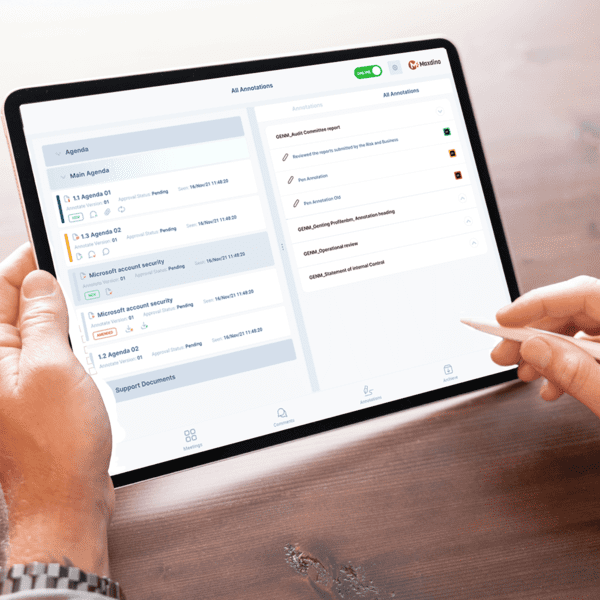Who owns the Board Agenda?
Boards today are balancing complex strategic and tactical agendas.
They’re balancing consideration of business performance, economic outlook, risk management, the competitive landscape, changing regulatory postures, new market entries, expectations and demands of shareholders, customers, staff and the wider community.
They’re also considering how to best match their own experience, expertise, and composition to meet the evolving needs of the organization and its market.
Right, so, who owns the Board agenda?
Or, more specifically, within this complex and challenging environment does the traditional model of the Chairperson, with support from the Company Secretary, creating and managing the Board agenda still make sense?
In today’s post we’ll look at some models that we see our clients adopting.

Traditional
For many Boards the Chair, with support from the Company Secretary, still plays a dominant role in setting the Board agenda.
Topics, inputs, timings, supporting materials are all considered and settled by the Chair.
Input is sought from other Board members with specific focus on those Board members leading key sub-committees or working groups, key leadership, most usually the CEO and the CFO, and trusted external advisors such as lawyers and auditors.
Even in this more ‘controlled’ model the evolution and refinement of the Board agenda is complex. We commonly hear from our clients driving alignment to the proposed agenda can be challenging, traceability and transparency around what is on, and not on, the agenda and why can also be problematic.
Hybrid/Distributed
For other Boards a distributed model is deployed.
Whilst the Chair retains final authority a wider group of stakeholders has an active voice in designing and settling the Board agenda.
Subject Matter Experts from inside the organization might bring forward discussions and approvals relating to ESG, Cybersecurity, or wider Geopolitical matters. We also see matters pertaining to an organization’s workforce brought forward for discussion with greater frequency in this model.
Our clients also tell us these models also see disparate external ‘voices’ represented on the Board Agenda. Views from minority ownership, customer representatives or even insights gained from social media monitoring can be seen.
Again, many of the challenges faced by organizations in the traditional model confront those utilizing a distributed model but with further complexity.
How can the Board easily and appropriately ‘segregate’ discrete external and internal participants and topics without compromising the experience of participants and Board members?
How does the Board balance its ‘core agenda’ with the important topics and themes emerging from this wider group?
Open
A final model that surprised us but is gaining momentum is one we’re calling ‘open’.
In this scenario the Board carefully and deliberately establishes frameworks, design making principles, data sets and decision criteria in line with the corporate strategy which then guide the formation and evolution of the Board agenda.
These models can be published widely and stakeholders of all sorts can propose and structure topics for consideration by the Board. This open architecture can surface a huge array of topics, pre-vetted and assessed by the models developed to ensure only the most important topics required Board visibility can be surfaced.
Even more than the distributed model this creates significant operational challenges for teams at the centre of an organization managing Board processes.
Whatever model, or mixture of approaches, when you select BoardPAC it provides you with the ideal platform to run your most important leadership meetings.
Seamless collaboration, elegant user experience for the most senior audiences, all delivered with military grade security.
Share working papers with your Board and leadership teams, track papers, approvals and deliverables from meeting to meeting, survey stakeholders on desired outcomes, publish guides and principles to all users, and much, much more all on our platform.
For more information on BoardPAC:


